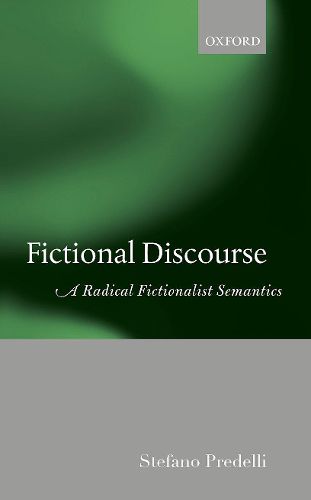Readings Newsletter
Become a Readings Member to make your shopping experience even easier.
Sign in or sign up for free!
You’re not far away from qualifying for FREE standard shipping within Australia
You’ve qualified for FREE standard shipping within Australia
The cart is loading…






Fictional Discourse: A Radical Fictionalist Semantics combines the insight of linguistic and philosophical semantics with the study of fictional language. Its central idea is familiar to anyone exposed to the ways of narrative fiction, namely the notion of a fictional teller. Starting with premises having to do with fictional names such as ‘Holmes’ or ‘Emma’, Stefano Predelli develops Radical Fictionalism, a theory that is subsequently applied to central themes in the analysis of fiction. Among other things, he discusses the distinction between storyworlds and narrative peripheries, the relationships between homodiegetic and heterodiegetic narrative, narrative time, unreliability, and closure. The final chapters extend Radical Fictionalism to critical discourse, as Predelli introduces the ideas of critical and biased retelling, and pauses on the relationships between Radical Fictionalism and talk about literary characters.
$9.00 standard shipping within Australia
FREE standard shipping within Australia for orders over $100.00
Express & International shipping calculated at checkout
Fictional Discourse: A Radical Fictionalist Semantics combines the insight of linguistic and philosophical semantics with the study of fictional language. Its central idea is familiar to anyone exposed to the ways of narrative fiction, namely the notion of a fictional teller. Starting with premises having to do with fictional names such as ‘Holmes’ or ‘Emma’, Stefano Predelli develops Radical Fictionalism, a theory that is subsequently applied to central themes in the analysis of fiction. Among other things, he discusses the distinction between storyworlds and narrative peripheries, the relationships between homodiegetic and heterodiegetic narrative, narrative time, unreliability, and closure. The final chapters extend Radical Fictionalism to critical discourse, as Predelli introduces the ideas of critical and biased retelling, and pauses on the relationships between Radical Fictionalism and talk about literary characters.